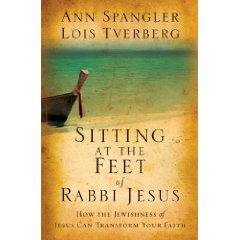Just like Paul in Acts 17, one of our tasks as Christians is to engage the culture where it’s at. Why is it that so much Christian media is so hopelessly out of touch with where it’s happening in society? As film maker Bruce Marchfelder says, we’re answering questions nobody is asking. No wonder Christianity is seen as irrelevant.
 Rikk Watts tells the story of being at a party when the conversation inevitably turned to ‘so what do you do?’. Rikk answered ‘I teach theology’, expecting his answer of course to be the ultimate conversation stopper. But then he went on, saying that he was just talking to some people about how the Gospel of John is alot like the movie Terminator 2. The people he was talking to pricked their ears up and asked how so. And so the conversation continued. Some weeks later Rikk was told that these people had turned to faith because they were so struck that the Christian message was so relevant. Not many of us would think that Arnie blasting his away around the place in Terminator 2 would be a good advertisement for the Prince of Peace, but there it was.
Rikk Watts tells the story of being at a party when the conversation inevitably turned to ‘so what do you do?’. Rikk answered ‘I teach theology’, expecting his answer of course to be the ultimate conversation stopper. But then he went on, saying that he was just talking to some people about how the Gospel of John is alot like the movie Terminator 2. The people he was talking to pricked their ears up and asked how so. And so the conversation continued. Some weeks later Rikk was told that these people had turned to faith because they were so struck that the Christian message was so relevant. Not many of us would think that Arnie blasting his away around the place in Terminator 2 would be a good advertisement for the Prince of Peace, but there it was.
Bruce Marchfelder, in an interview with Canadian Christianity, explains eloquently the importance of engaging the culture with relevance and interest. Here’s some of what he had to say:
I think in terms of the industry and so on, we just have to be smart. It’s Paul suggesting to Timothy that you might want to get circumcised because we’re going to be dealing with people of a certain type, and you know what, even though biblically you don’t really have to any more, I think it might be better culturally that we fit. The fact that you show up in a business suit or work out and stay fit so you don’t look like you’re going to keel over on set — it’s natural. You meet the culture where it is. That’s the way we need to engage…we don’t understand that the Lord puts us in these places where we can really make a dent on the universe.









